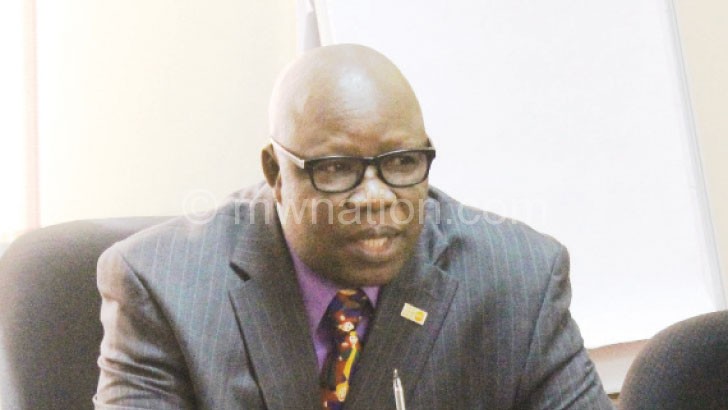‘Maternal death is one too many’
UNFPA plays a key role in promoting maternal health, girls’ education, gender equality and interventions that focus on young people in Malawi. Dan Odallo the new country representative shares what he intends to achieve with our reporter Paida Kadzakumanja in this interview. Excerpts

child birth is safe
Q
Welcome to Malawi. First, teenage pregnancies in the country are on the rise (rose from 26 to 29 percent) according to the recent Malawi Demographic and Health Survey (MDHS), what are some of the new interventions you will deploy in order to address this?
A
This is not good news at all. I believe you know that children born to teenage mothers are at an increased risk of sickness and death. A teenage mother experiences stressful moments and is likely to drop out of school and her chance of going back remains elusive. Most of these teenage girls are from the rural areas. Consider this being your own girl child at home. A case in example is the recent report from Nkhata Bay where 16 girls were impregnated by boys from the same school in just one term. This is sign that our young girls are initiating sex at an early stage creating increased risk of HIV exposure and we simply cannot ignore it. The good news is that, all is not lost as we see it. We can do something to mitigate this situation by providing age appropriate sexual and reproductive health information and services that meets the needs of young people. UNFPA will, therefore, continue to work with government particularly ministries of Health, Education, Gender and Youth to ensure young girls get appropriate information about their sexual health and also make sure our youth friendly health services are functional and meet the information and service needs of the youth.
Q
What do you see as pressing issues in Malawi that UNFPA finds necessary to be addressed in respect of its work?
A
Malawi has made significant strides in reducing maternal deaths and in general improvement of maternal health. The country has also done well in looking at other issues related to population and development (such as census), young people and adolescent sexual and reproductive health, family planning as well as in promoting gender equality and women empowerment. I want to acknowledge in particular initiatives touching on gender-based violence, which as you know can be very detrimental to women’s’ health and in the larger picture, a bad indicator for national development.
Despite this progress, our maternal mortality ratio is still high though health facility deliveries are over 90 percent. If this is the case then we need to re-examine again the quality of care in our health facilities. We have also seen government commitment in the area of improving young people’s skills through the community colleges. This is a good approach and what remains is to ensure the skills provided by the institutions are those that are responsive to the labour market so that the trained youth can find gainful employment.
QThe current maternal deaths are high, what should be done to bring down the figures?
A
As I said before, the DHS key indicator report 2015-2016 shows that more than 90 percent of live births occur in health facilities yet our maternal deaths seem to stagnate at a very high figure. I am aware the maternal mortality ratio is yet to be released but the current ratio which is at 574 per 100 000 live births is still high, considering that the global average is 210. No woman should die while giving life, and that is why as UNFPA, we say that one maternal death is one too many. We will work with the Ministry of Health (MoH) to improve the quality of maternal and newborn health care, increase the number of midwives and facilitate easy access to hospitals through an effective transport and communication system. There is rich evidence in the country on the major causes of most of these deaths, hence UNFPA will work with government and partners to address these through improving access to emergency obstetrics and neonatal care services (EmONC).
Q
Any concluding remarks?
A
I pledge the full resources of UNFPA in Malawi to work with and support government to ensure that every pregnancy for all women and girls is wanted, every child birth is safe and every young person’s potential is fulfilled. n





